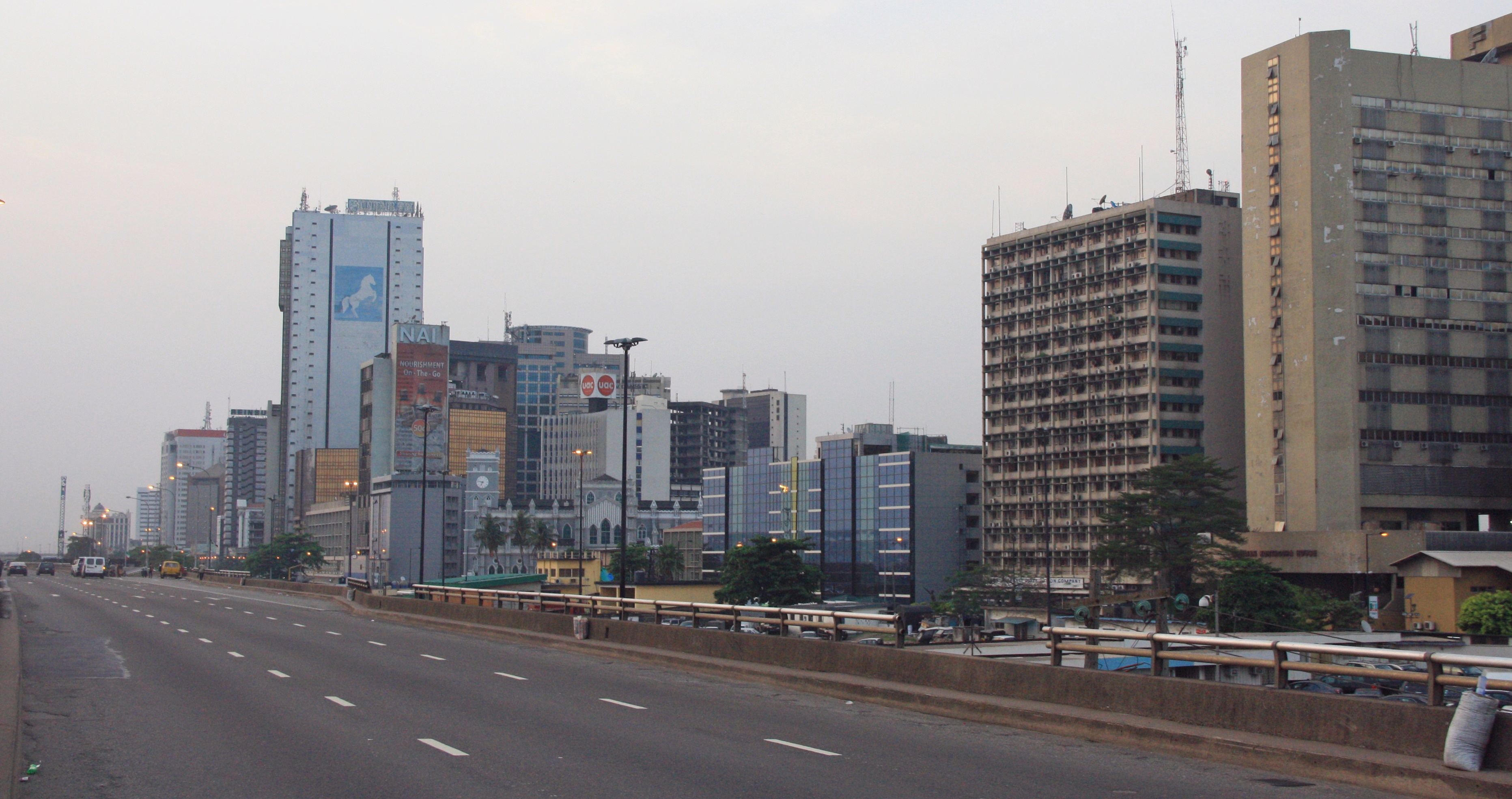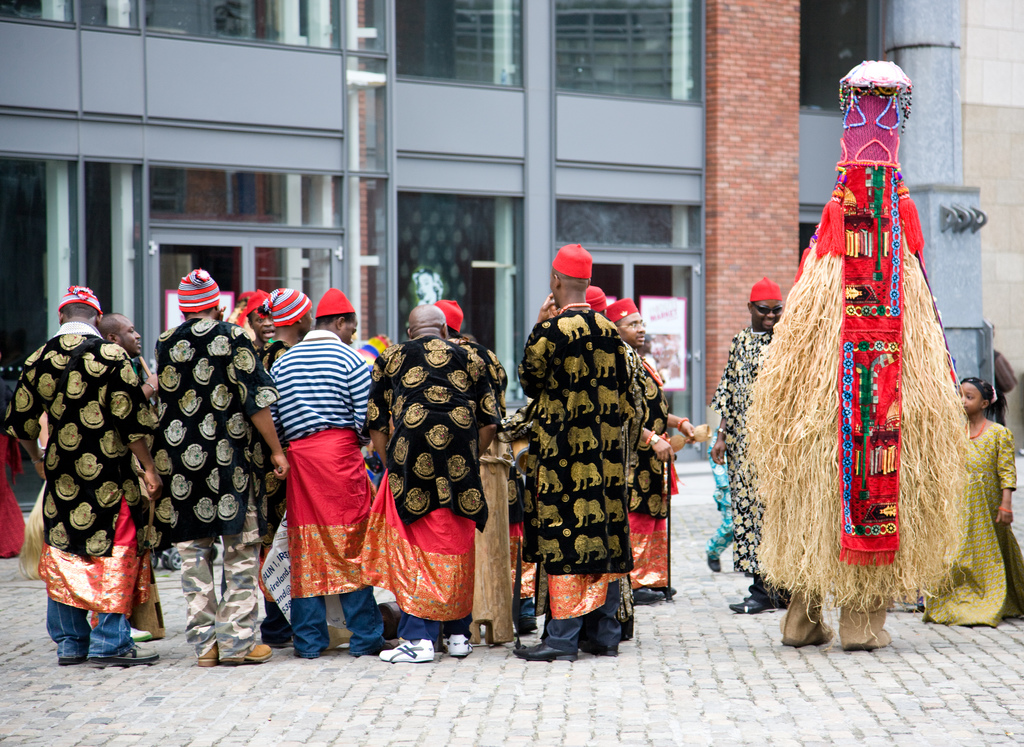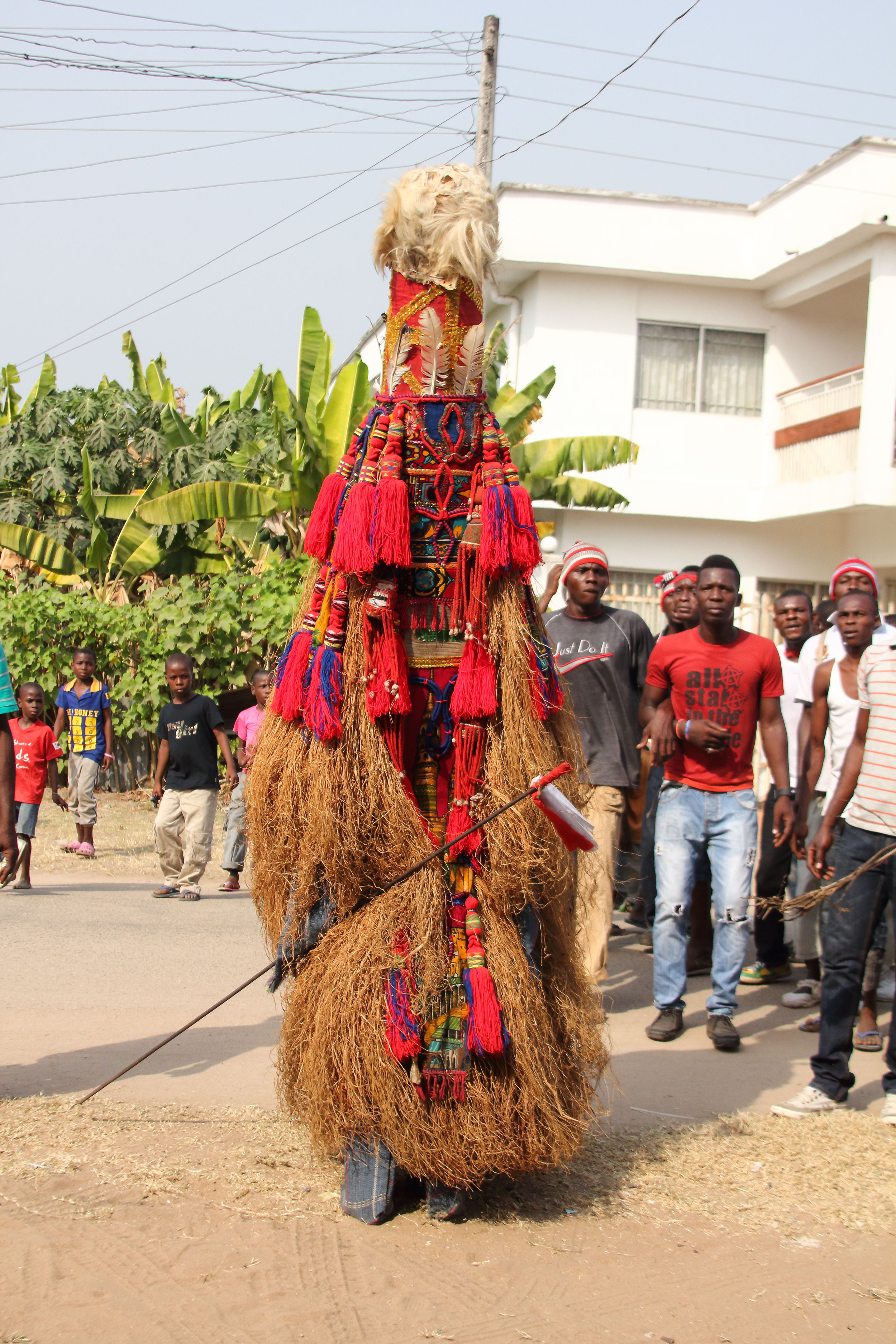|
Owo, Enugu
''For other places see Owo, a LGA in Ondo State.'' Owo is a town in Nkanu East Local Government Area (LGA) of Enugu state, Nigeria. Owo consists of six main villages: Ashishi, Ohuani, Ishiegu, Ogere, Emene and Ndiagu. Other settlements which were originally part of the main villages are Ejaogbo, Mbulu, Ekeagu, Obegu ishiagu, Obegu Emene, Obegu Ogere, and Obegu Ohuani. These make up Mbulu Owo autonomous community created in the year, 2006. The town is an agrarian community: About 80% of the population are farmers. The population of Owo in 2014 was 9,879. The estimated population of Owo in 2022 is over 14,000 people. History Owo's history was handed over to the present generation by folklore and there are various accounts to their origin. One account of the folktale has it that their migration to the present location started from Umuatugbuoma in Akegbe Ugwu, a town located along the Enugu – Port Harcourt expressway in the present day Nkanu West LGA of Enugu state. While the de ... [...More Info...] [...Related Items...] OR: [Wikipedia] [Google] [Baidu] |
Nigeria
Nigeria ( ), , ig, Naìjíríyà, yo, Nàìjíríà, pcm, Naijá , ff, Naajeeriya, kcg, Naijeriya officially the Federal Republic of Nigeria, is a country in West Africa. It is situated between the Sahel to the north and the Gulf of Guinea to the south in the Atlantic Ocean. It covers an area of , and with a population of over 225 million, it is the most populous country in Africa, and the world's sixth-most populous country. Nigeria borders Niger in the north, Chad in the northeast, Cameroon in the east, and Benin in the west. Nigeria is a federal republic comprising of 36 states and the Federal Capital Territory, where the capital, Abuja, is located. The largest city in Nigeria is Lagos, one of the largest metropolitan areas in the world and the second-largest in Africa. Nigeria has been home to several indigenous pre-colonial states and kingdoms since the second millennium BC, with the Nok civilization in the 15th century BC, marking the first ... [...More Info...] [...Related Items...] OR: [Wikipedia] [Google] [Baidu] |
Ishielu
Ishielu is a Local Government Area of Ebonyi State, Nigeria. Its headquarters are in the town of Ezillo. It has an area of 872 km and a population of 151,048 at the 2006 census. The postal code A postal code (also known locally in various English-speaking countries throughout the world as a postcode, post code, PIN or ZIP Code) is a series of letters or digits or both, sometimes including spaces or punctuation, included in a postal a ... of the area is 481. References Local Government Areas in Ebonyi State {{Ebonyi-geo-stub ... [...More Info...] [...Related Items...] OR: [Wikipedia] [Google] [Baidu] |
Towns In Nigeria
This is a list of populated places in Nigeria. Cities in bold are among the fourteenth-most populous in the country (covered in more detail at List of Nigerian cities by population): Cities * Aba *Abakaliki *Abeokuta *Abonnema *Abuja *Ado Ekiti *Afikpo * Akpawfu *Akure *Asaba *Awgu *Awka *Bauchi *Batagarawa *Benin City *Bida *Birnin Kebbi *BugumaThe Official Gazette of Rivers State of Nigeria No. 16, published in Port Harcourt on the 25th of August 1983 *Calabar *Damaturu *Dutse * Ede *Eket *Enugu * Gombe *Gusau *Ibadan * Ife *Ikeja *Ikirun *Ikot-Abasi *Ikot Ekpene *Ilorin * Iwo *Jalingo *Jebba *Jimeta * Jos *Kabba *Kaduna *Kano *Katsina * Karu *Kontagora *Kutigi * Kumariya *Lafia *Lagos *Lekki *Lokoja *Maiduguri *Makurdi *Minna *Nnewi *Nsukka *Offa *Ogbomoso *Onitsha *Okene * Ogaminana *Omu-Aran *Ondo City *Oron *Oshogbo *Owerri * Owo * Orlu * Oyo * Port Harcourt *Potiskum *Sokoto *Suleja *Umuahia *Uyo *Warri *Wukari *Yenagoa * Yola *Zaria See also * List of Nigerian ci ... [...More Info...] [...Related Items...] OR: [Wikipedia] [Google] [Baidu] |
Music
Music is generally defined as the art of arranging sound to create some combination of form, harmony, melody, rhythm or otherwise expressive content. Exact definitions of music vary considerably around the world, though it is an aspect of all human societies, a cultural universal. While scholars agree that music is defined by a few specific elements, there is no consensus on their precise definitions. The creation of music is commonly divided into musical composition, musical improvisation, and musical performance, though the topic itself extends into academic disciplines, criticism, philosophy, and psychology. Music may be performed or improvised using a vast range of instruments, including the human voice. In some musical contexts, a performance or composition may be to some extent improvised. For instance, in Hindustani classical music, the performer plays spontaneously while following a partially defined structure and using characteristic motifs. In modal jazz ... [...More Info...] [...Related Items...] OR: [Wikipedia] [Google] [Baidu] |
African Traditional Religion
The traditional beliefs and practices of African people are highly diverse beliefs that include various ethnic religions.Encyclopedia of African Religion (Sage, 2009) Molefi Kete Asante Generally, these traditions are oral tradition, oral rather than Religious text, scriptural and passed down from one generation to another through folk tales, songs, and festivals, include belief in an amount of higher and lower gods, sometimes including a supreme creator or force, belief in spirits, veneration of the dead, use of Magic (supernatural), magic and traditional African medicine. Most religions can be described as Animism, animistic with various polytheistic and pantheistic aspects. The role of humanity is generally seen as one of harmonizing nature with the supernatural. Spread Adherents of traditional religions in Africa are distributed among 43 countries and are estimated to number over 100 million.''Britannica Book of the Year'' (2003), ''Encyclopædia Britannica'' (2003) p.306 A ... [...More Info...] [...Related Items...] OR: [Wikipedia] [Google] [Baidu] |
Igbo Culture
Igbo culture () are the customs, practices and traditions of the Igbo people of southeastern Nigeria. It consists of ancient practices as well as new concepts added into the Igbo culture either by cultural evolution or by outside influence. These customs and traditions include the Igbo people's visual art, music and dance forms, as well as their attire, cuisine and language dialects. Because of their various subgroups, the variety of their culture is heightened further. Music The Igbo peoples have a melodic and symphonic musical style, which they designed from forged iron. Other instruments include opi otherwise known as 'Oja'' a wind instrument similar to the flute, igba, and ichaka. Another popular musical form among Igbo people is highlife, which is a fusion of jazz and traditional music and widely popular in West Africa. The modern Igbo highlife is seen in the works of Prince Nico Mbarga Dr Sir Warrior, Oliver De Coque, Bright Chimezie, Celestine Ukwu and Chief Os ... [...More Info...] [...Related Items...] OR: [Wikipedia] [Google] [Baidu] |
New Yam Festival Of The Igbo
The New Yam Festival of the Igbo people (''Orureshi in the idoma area'', Iwa ji, Iri ji or Ike ji, Otute depending on dialect) is an annual cultural festival by the Igbo people that is held at the end of the rainy season in early August.Yam Festival Retrieved 11 May 2009. Daniels, Ugo. ''African Loft''. 6 November 2007 Iwa ji Ofu (New Yam Festival) In Igboland! Retrieved 11 May 2009. The Iri ji festival (literally "''new-yam eating''")Omenuwa, Onyema. ''TheWeek''. 22 Nov 2007. Republished by |
Mmanwu
Mmanwu is a traditional masquerade of the Igbo people of Southeastern Nigeria Nigeria ( ), , ig, Naìjíríyà, yo, Nàìjíríà, pcm, Naijá , ff, Naajeeriya, kcg, Naijeriya officially the Federal Republic of Nigeria, is a country in West Africa. It is situated between the Sahel to the north and the Gulf o .... They are performed only by males in exclusive secret societies and involve the use of elaborate, colorful costumes that are meant to invoke ancestral spirits. Masquerade traditions have a varied range of purposes that span from performing elements of epic drama derived from community cosmology and lore, ushering in new months and seasons, honoring totems and ancestral spirits, enactments of parables or myths, with entertainment and community building serving as a consistent commonality. In the past masquerades also bore judicial, social regulatory, and even policing powers, however though these functions have decreased in modern times. Etymology The ... [...More Info...] [...Related Items...] OR: [Wikipedia] [Google] [Baidu] |
Age Grade
In sociology and anthropology, an age grade or age class is a form of social organization based on age, within a series of such categories, through which individuals pass over the course of their lives. This is in contrast to an age set, to which individuals remain permanently attached as the set itself becomes progressively more senior. The number of age classes, the determining ages and the terminology vary significantly between traditions. Even within a single society, a person may belong to several overlapping grades in different spheres of life, e.g. per year a different school class and yet for several years on end a child, then an adolescent, finally an adult. In tribal societies entry into an age grade – generally gender-separated – is often marked by an initiation rite, which may be the crowning of a long and complex preparation, sometimes in retreat. After a period of some years, during which they often perform certain common activities, alone or under senior guid ... [...More Info...] [...Related Items...] OR: [Wikipedia] [Google] [Baidu] |
Tradition
A tradition is a belief or behavior (folk custom) passed down within a group or society with symbolic meaning or special significance with origins in the past. A component of cultural expressions and folklore, common examples include holidays or impractical but socially meaningful clothes (like lawyers' wigs or military officers' spurs), but the idea has also been applied to social norms such as greetings. Traditions can persist and evolve for thousands of years—the word ''tradition'' itself derives from the Latin ''tradere'' literally meaning to transmit, to hand over, to give for safekeeping. While it is commonly assumed that traditions have an ancient history, many traditions have been invented on purpose, whether that be political or cultural, over short periods of time. Various academic disciplines also use the word in a variety of ways. The phrase "according to tradition", or "by tradition", usually means that whatever information follows is known only by oral tradition, ... [...More Info...] [...Related Items...] OR: [Wikipedia] [Google] [Baidu] |
Yam (vegetable)
Yam is the common name for some plant species in the genus '' Dioscorea'' (family Dioscoreaceae) that form edible tubers. Yams are perennial herbaceous vines cultivated for the consumption of their starchy tubers in many temperate and tropical regions, especially in West Africa, South America and the Caribbean, Asia, and Oceania. The tubers themselves, also called "yams", come in a variety of forms owing to numerous cultivars and related species. Yams were independently domesticated on three different continents: Africa (''Dioscorea rotundata''), Asia (''Dioscorea alata''), and the Americas (''Dioscorea trifida''). Etymology The name "yam" appears to derive from Portuguese ''inhame'' or Canarian (Spain) ''ñame'', which derived from West African languages during trade. However in both languages, this name commonly refers to the taro plant (''Colocasia esculenta'') from the genus ''Colocasia'', as opposed to '' Dioscorea''. The main derivations borrow from verbs me ... [...More Info...] [...Related Items...] OR: [Wikipedia] [Google] [Baidu] |
Ebonyi State
Ebonyi State ( ig, Ȯra Ebonyi) is a state in the South-East geopolitical zone of Nigeria, bordered to the north and northeast by Benue State, Enugu State to the west, Cross River State to the east and southeast, and Abia State to the southwest. Named for the Abonyi (Aboine) River—a large part of which is in the state's south—Ebonyi State was formed from parts of Abia and Enugu state in 1996 and has its capital as Abakaliki. One of the smallest states of Nigeria, Ebonyi is the 33rd largest in area and 29th most populous with an estimated population of nearly 2.9 million as of 2016. Geographically, the state is divided between the Cross–Niger transition forests in the far south and the drier Guinean forest–savanna mosaic in the rest of the state. The other important geographical features are the Cross River and its tributary, the River Aloma, which flow along Ebonyi's southeastern and eastern borders, respectively; while fellow Cross River tributaries, the Abonyi (Ab ... [...More Info...] [...Related Items...] OR: [Wikipedia] [Google] [Baidu] |








